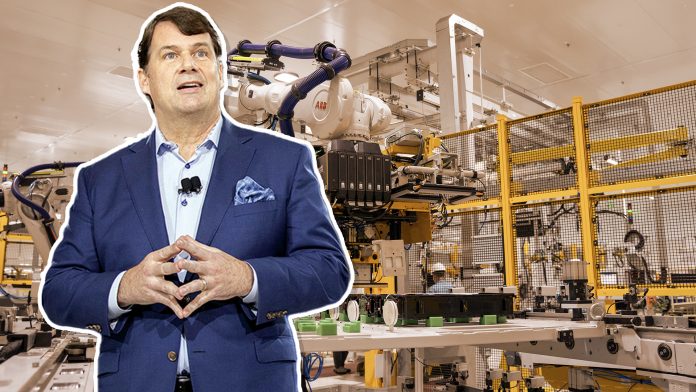Yesterday afternoon, Ford and Chinese battery maker CATL confirmed a new lithium iron phosphate (LFP) battery factory in Michigan.
The news arrives some weeks after Virginia Governor Glenn Youngkin refused to allow the two companies to build an LFP battery plant within the state over worries that the international business relationship would turn Ford into a “front for China.” However, according to Ford’s Vice President of EV Industrialization, Lisa Drake, the plant will be entirely owned and operated by the automaker in the form of a subsidiary. Instead of having direct influence over the company in a joint venture capacity, CATL will play the role of contractual service provider and licensor of technology to Ford.
Geopolitics aside, the move promises to be beneficial for both Ford and Michigan’s workforce. Ford will maintain complete control over the LFP factory, which is expected to create 2,500 new jobs when it opens in 2026, with Ford spending roughly $3.5 billion to get the facility up and running. LFP batteries have several advantages over the typical lithium-ion versions seen in most electric vehicles, such as better driving range and longer life cycles. In combination with their lower price, these benefits have led many electric vehicle brands, such as Tesla, to use them in their latest models. However, despite their prevalence and utility, LFP batteries have yet to be manufactured in the states, leaving automakers with little choice but to import them. Given that the Biden Administration’s EV tax credits require domestic sourcing for vehicle components, Ford’s motivations for building a U.S. facility are clear. CATL, on the other hand, will receive no U.S. tax dollars through this deal.
What is less clear is whether the LFP plant’s development will play out as Ford and CATL hope. The tensions between China and the U.S. could cause any number of disruptions between today and 2026. It is important to remember that the automotive industry does not operate within a vacuum, and that politics, international trade, and other external factors can interrupt its best-laid plans.
Did you enjoy this article? Please share your thoughts, comments, or questions regarding this topic by connecting with us at newsroom@cbtnews.com.
Be sure to follow us on Facebook, LinkedIn, and TikTok to stay up to date.
While you’re here, don’t forget to subscribe to our email newsletter for all the latest auto industry news from CBT News.




